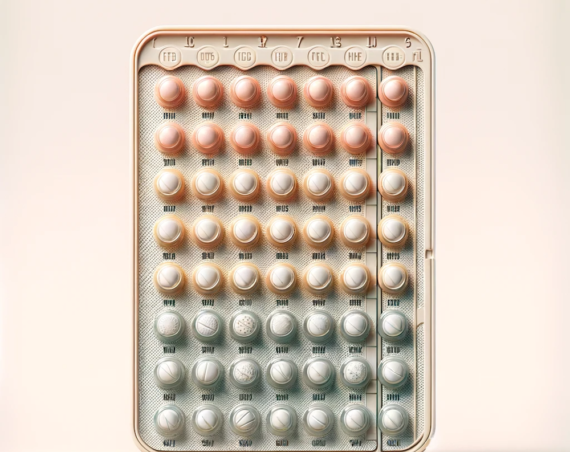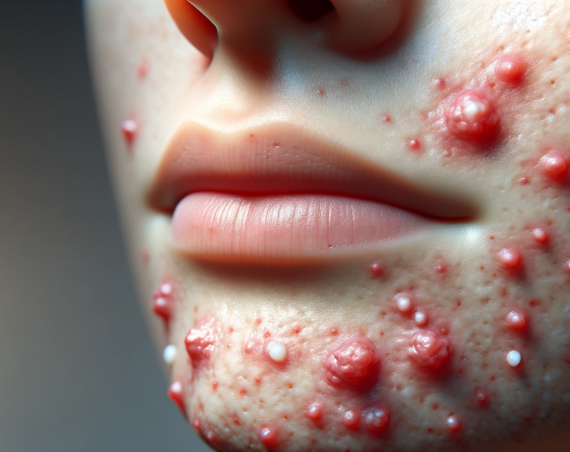
Often enough, we women take our premenopausal years for granted. There’s a self-satisfying notion that we cannot get pregnant during these years before getting a period for one last time. But the chance of getting pregnant is still far from bidding adieu.
Despite the reduced ovulation rate, your ovary is still at work of producing fertilizable eggs. With the unpredictable hormonal behavior, you can still get pregnant during perimenopause.
What Is Perimenopause?
Perimenopause, also known as menopause transition, starts a few years before entering the actual menopause. In this stage, the production of estrogen in the ovaries progressively declines. This decline process continues until your body reaches menopause and your ovaries stop producing estrogen. For most women, it usually starts by 40s, but it can also hit by the 30s.
Symptoms of Perimenopause
How do you know that you’re stepping into the unpredictable ground of perimenopause? Well, here are the symptoms.
- Period Irregularity
Once the eggs’ production in the ovary becomes unpredictable, the time frame between periods may increase or decrease.
- Mood Swings
Mood swings, irritation, or depression might occur during perimenopause. However, the actual symptoms might connect with hot flashes.
- Hot Flashes
A hot flash is a common symptom of perimenopause. The intensity or frequency may vary from person to person.
- Urinary Bladder Issues
Low levels of estrogen may also lead to vaginal and urinary infections. Loss of tissues can also enhance the chance of urinary continence.
- Vaginal Discomfort
Once the estrogen levels reduce, the vaginal tissues may lack lubrication and elasticity. Therefore, you may feel pain during intercourse.
- Reducing Fertility
Your ability to become pregnant also decreases once ovulation becomes inconsistent. But as long as you have periods, you can become pregnant.
- Decreasing Sex Drive
Your sexual desires may also vary during perimenopause. This also happens due to fluctuating sex hormone functions.
- Decreased Bone Density
You may also start losing bone density during perimenopause; thus, increasing the chance of getting osteoporosis.
- Shifting Cholesterol Level
Reducing estrogen levels may also lead to high cholesterol levels. The increment of low-density cholesterol can cause heart disease.
Causes and Risk Factors of Perimenopause
- Hormone Fluctuation
Your body’s production rate of estrogen and progesterone reduces as you approach menopausal transition. During perimenopause, most of your troubles are a direct result of a lack of estrogen levels.
- Removal of Uterus
Hysterectomy is a medical process to remove the uterus. The operation doesn’t involve the removal of ovaries, so it doesn’t affect menopause. But such operations can enhance the chance of you reaching menopause earlier than average.
- Chemotherapy
Chemotherapy and pelvic radiation are mainly used for cancer treatment. However, they can lead to early menopause.
- Smoking Habit
Those women who smoke regularly tend to attend menopause earlier than those who don’t smoke.
- Heredity
In some cases, if a woman has heredity of early menopause, they might also attain early menopause.
Can You Become Pregnant During Perimenopause?
Yes. You can become pregnant during perimenopause even though there is a decline in your fertility rate. And if you don’t want to conceive, use some form of birth control since you can get pregnant until you reach menopause.
However, the chance of you conceiving is low during perimenopause. Statistically, it’s somewhat around 2%. Even In Vitro Fertilization (IVF) has limitations since the egg count is substantially low. In fact, the chances of miscarriages also increase by 50% for women over 45. It can also lead to structural or functional disability among newborns.
Complications of Perimenopausal Pregnancy
Getting pregnant at an older age has its own set of complications and drawbacks. For starters, old age and medical conditions go hand-in-hand with each other. You can easily face blood pressure issues, diabetes, or fibroids, thus making your pregnancy already complicated.
Restriction in a child’s growth, placental problem, or preterm labor is the most common problem in perimenopausal pregnancy.
It is crucial to ensure the ability of your body to embrace a healthy pregnancy. And producing the best quality eggs is also essential. Both of these factors will improve your chance of conceiving a healthy baby.
Usage of donor eggs also has a success rate of over 40%. But many women avoid using it because it is a complicated decision to make.
How to Prepare Yourself for Pregnancy During Perimenopause
Preparation is an essential part of your pregnancy. The conception plan and procedures remain the same for you as well as for a young woman.
- A healthy eating habit is vital for pregnancy. Try eating organic and nutritious food that is not affected by pesticides or other harmful chemicals.
- Exercise is also essential for pregnancy. It keeps the blood flow normal to all vital organs and keeps your body weight under control. Thus, reduces the risk of miscarriages.
- Avoid smoking or consumption of alcohol during your pregnancy. It is crucial for your baby’s health. In fact, try using natural products. It will keep you and your baby both healthy.
- Sleep is an essential tool to enhance your immunity power and help you clear out your excess hormones.
- Regular sex can also help you to improve the quality of sperm and the internal womb for the baby.
Treatment to Stop Pregnancy During Perimenopause
There are treatment methods available to get a hold of your perimenopause pregnancy chances.
- Estrogen-Progestin Combined Medication
A combination of Estrogen and Progestin containing medicine will help you deal with perimenopausal abnormalities of the ovaries.
- Contraceptives
Contraceptives contain hormones that alter the way your body functions and thus prevents pregnancy.
- Skin Patches
A skin patch is a small sticky square that you can wear anywhere on your body. It helps you send hormones, just like birth control pills.
- Non-Hormonal Protections
Non-hormonal protection includes condoms, a diaphragm, a cervical cap that can help in birth control. Usage of condoms will also protect you from sexually transmitted diseases.
- Sterilization
Permanent sterilization such as vasectomy or tubal ligation is a permanent solution to help in birth control.
Conclusion
So, yes, you can become pregnant during perimenopause but considering all the drawbacks, the chances are slim. However, with proper pregnancy procedure and precaution, you also give birth to a healthy baby.



